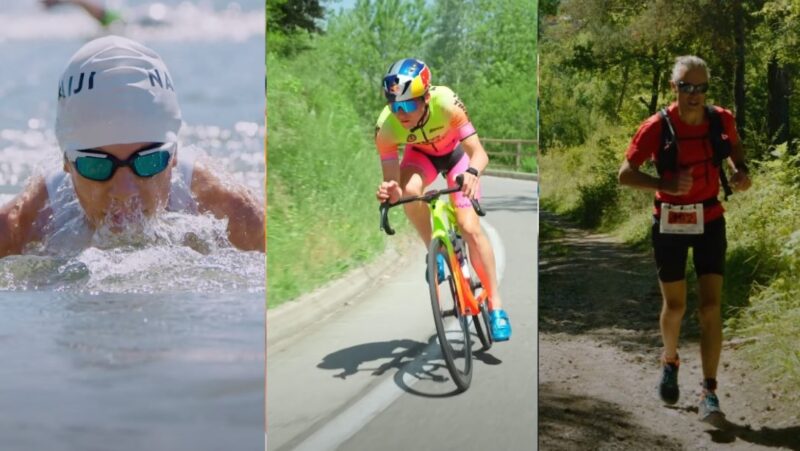If you’re a triathlon fan like me, you know that training for a triathlon is a big deal. It’s not just about the hours you put into swimming, biking, and running; it’s also about what you put on your plate. That’s right, what you eat before your race can really make a difference.
In this guide, we’ll talk about what to eat before a race. We’ll keep it simple and practical, focusing on foods that boost energy, enhance performance, and keep you going strong.
Macronutrient Balance: Carbs, Proteins, and Fats
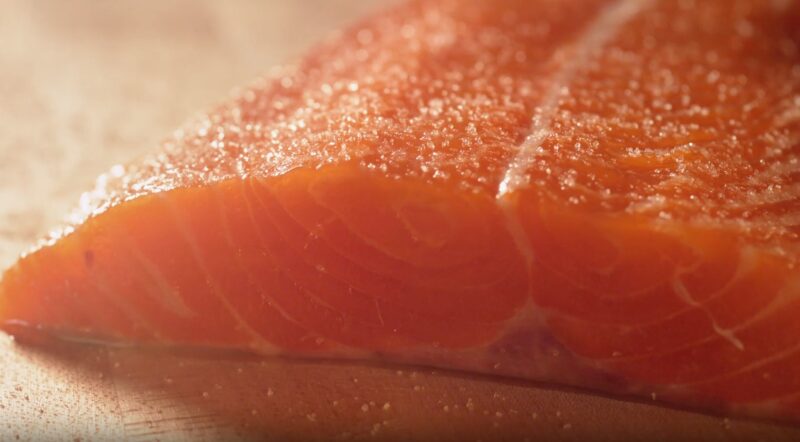
Nutrition is a cornerstone in a triathlete’s preparation and performance. The right diet not only fuels the body for the demanding nature of a triathlon but also supports quicker recovery and reduces the risk of injuries and fatigue.
It’s not just about what you eat, but also when and how you eat. A balanced approach to nutrition can be the difference between hitting your peak performance or struggling mid-race. The foods consumed in the days and hours before the event have a direct impact on energy levels, endurance, and overall race experience.
| Macronutrient | Role | Sources | Considerations |
|---|---|---|---|
| Carbohydrates | The primary source of energy during high-intensity exercises. Provide steady energy release. | Whole grains, fruits, vegetables | Should be a significant part of the diet, especially before the race. Balance with other macronutrients. |
| Proteins | Vital for muscle repair and recovery. | Lean meats, fish, legumes, dairy | Consume in moderation before the race to avoid digestive issues. |
| Fats | Essential for long-term energy. | Avocados, nuts, olive oil | Consume in controlled portions and well before race time, as they take longer to digest. |
Hydration: A Critical Aspect of Pre-Race Nutrition
Hydration is just as crucial as solid food intake. Dehydration can lead to decreased performance, cramps, and heat-related illnesses. It’s important to drink plenty of water in the days leading up to the race.
Additionally, incorporating electrolyte-enhanced drinks can be beneficial to maintain salt balance and prevent electrolyte imbalances, which are common during long endurance events like triathlons.
Meal Planning and Timing Before the Race
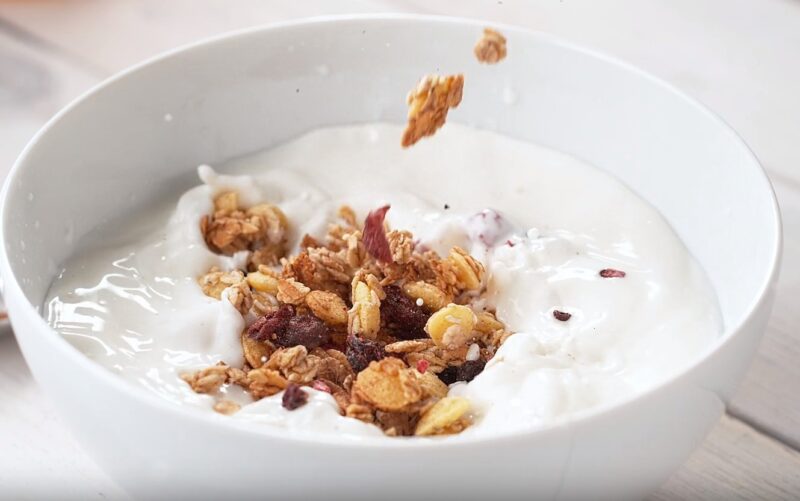
The Week Before: Building Energy Reserves
In the week leading up to the race, focus on building your energy reserves through carb-loading. This technique involves gradually increasing your carbohydrate intake to maximize glycogen storage in muscles. Include carbohydrate-rich foods like pasta, rice, and potatoes in your meals.
This doesn’t mean overeating; rather, it’s about strategically increasing carbs while maintaining a balanced diet. Avoid drastic dietary changes during this period, as they can lead to digestive discomfort.
The Night Before: Preparing Your Body
The dinner before the race is critical. It should be rich in complex carbohydrates with a moderate amount of protein and low in fat. This combination helps to top up glycogen stores without overburdening the digestive system.
Ideal meal choices include chicken and vegetable pasta or a quinoa and bean salad. It’s also important to avoid new or heavy, greasy foods that could cause stomach upset.
Race Morning: The Final Fueling
On the morning of the race, eat a light, carbohydrate-rich breakfast 2-3 hours before the start. This meal should be something familiar and easy to digest, like oatmeal with fruits, a bagel with peanut butter, or a banana with yogurt.
It’s crucial to avoid high-fiber or fatty foods as they can be hard to digest and may cause gastrointestinal discomfort during the race.
Specific Nutritional Strategies for Each Segment
Swimming: Before the swim segment, opt for light, easily digestible foods to avoid gastrointestinal discomfort. A small, carbohydrate-rich snack like a banana or an energy bar can be ideal. It’s also important to consider the timing of this snack – eating too close to the swim can cause discomfort, so plan to have this snack well before the start.
Cycling: During the cycling leg, sustained energy is key. Consider carrying energy gels or small snacks like dates or energy bars, which are rich in carbohydrates and easy to consume on the go. Hydration is equally important; plan to drink fluids, preferably with electrolytes, at regular intervals to maintain hydration levels.
Running: The running portion requires quick, accessible energy sources. Energy gels, chews, or sports drinks are effective in providing a rapid energy boost. It’s vital to have practiced with these during your training to ensure they agree with your stomach, as gastrointestinal issues during the run can significantly impact your performance.
Race Day Nutrition Tips and Tricks
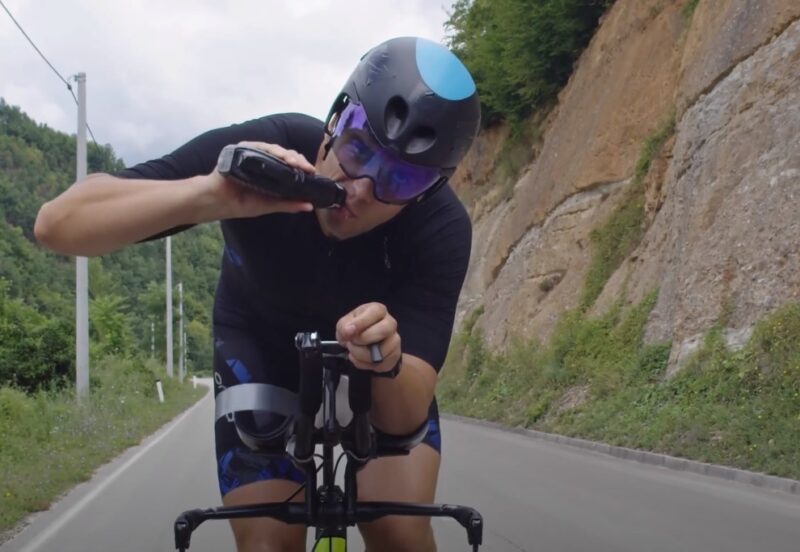
Timing Your Intake: When and What to Eat
Proper timing of food intake on race day is crucial for optimal performance. It’s recommended to eat your last large meal 3-4 hours before the race. This meal, high in carbohydrates and low in fiber, fat, and protein, ensures easy digestion and energy availability.
As the race approaches, a small, easily digestible snack can maintain energy levels without causing discomfort. Be mindful of the balance between fueling adequately and avoiding gastrointestinal issues.
Managing Hydration and Electrolytes
Effective hydration management is essential, especially in longer events like triathlons. Start hydrating well before the race and have a plan for fluid intake during the event. Electrolyte drinks or gels are crucial for replacing salts lost through sweat and preventing cramping.
It’s important to practice your hydration strategy during training to understand your body’s needs and how it reacts to different hydration products.
The Role of Caffeine
Caffeine can be a valuable tool for enhancing endurance performance. If you’re accustomed to caffeine, a small amount before or during the race can provide an extra boost. However, it’s essential to be aware of your personal tolerance to caffeine, as it can cause jitters, anxiety, or gastrointestinal distress in some individuals.
Test your caffeine strategy during training to ensure it benefits your performance without adverse effects.
Tailoring the Diet to Individual Needs
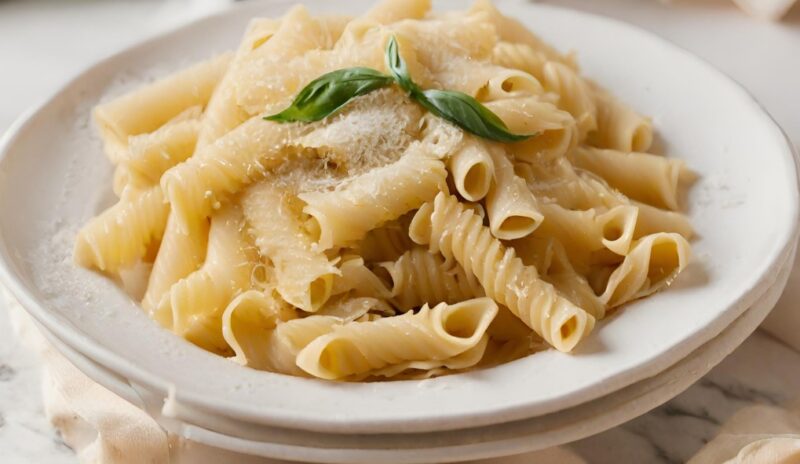
It’s essential for triathletes with dietary restrictions or allergies to plan their nutrition carefully. For those avoiding gluten, options like rice, quinoa, or gluten-free pasta can replace traditional carb sources.
Dairy-free athletes can find alternatives in almond, soy, or oat milk. Always be vigilant about food labels and the risk of cross-contamination if you have severe allergies.
Gender-Specific Nutritional Considerations
Nutritional needs can vary between genders. Women, for instance, should be mindful of their iron intake due to the risk of anemia, incorporating iron-rich foods regularly. Men might require more calories overall to support muscle mass and recovery, especially from protein sources.
Tailoring your diet to these gender-specific needs can enhance training and race-day performance, both in triathlon and sprint triathlon.
Age-Related Strategies
Nutritional requirements can also change with age. Older athletes should focus more on protein for muscle maintenance and recovery, as well as calcium and vitamin D for bone health. Younger athletes, on the other hand, might need more calories overall to support growth and the increased energy demands of training.
Understanding and adjusting to these age-related nutritional needs is key for optimal performance and health.
Post-Triathlon Recovery Nutrition
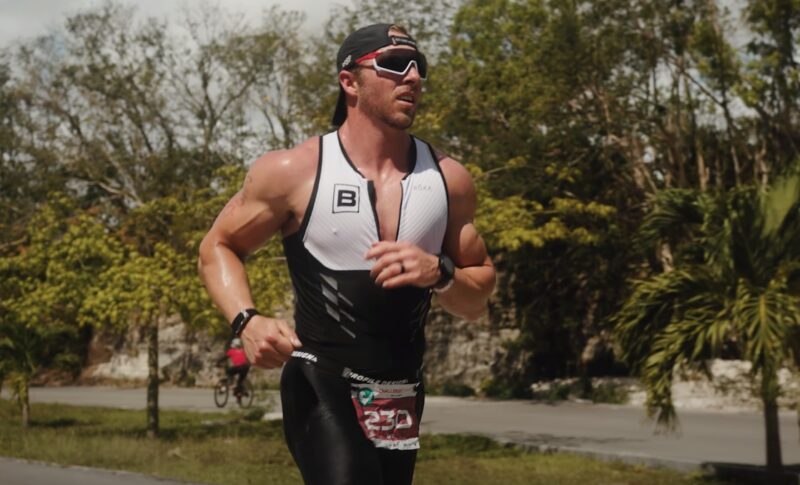
Immediately after the race, prioritize replenishing fluids, electrolytes, and glycogen stores. A recovery drink containing a balance of carbohydrates and protein can initiate the recovery process.
Quick snacks like fruit or a protein bar are also beneficial if a full meal is not available. This immediate post-race nutrition aids in muscle repair and replenishes energy reserves.
The Days Following the Race
In the days following the triathlon, continue with balanced meals consisting of carbohydrates, proteins, and fats. This balanced approach aids in continued recovery. Incorporate anti-inflammatory foods like berries, nuts, and fatty fish to help alleviate muscle soreness and expedite recovery.
Long-Term Recovery and Returning to Training
As you return to regular training, your diet should shift back to a balance of carbohydrates, proteins, and fats, similar to your pre-race training diet. Pay attention to your body’s signals and adjust your intake based on how you feel and your training demands.
Proper nutrition during this phase is crucial for maintaining energy levels, supporting ongoing muscle repair, and preparing for future training and races.
FAQs
Can I rely on sports drinks alone for my hydration during a triathlon?
While sports drinks are beneficial for hydration and replenishing electrolytes, they shouldn’t be your sole source of hydration. It’s important to balance sports drinks with water to ensure proper hydration. Sports drinks can provide essential electrolytes and some energy, but water is crucial for effective hydration, temperature regulation, and organ function.
Should I practice my pre-race meal plan during training?
Yes, practicing your pre-race meal plan during training is essential. It helps you identify foods that provide the best energy and are easiest to digest. This practice also allows your digestive system to adapt and minimizes the risk of gastrointestinal issues on race day.
How can I manage pre-race nerves that affect my appetite?
Pre-race nerves can impact appetite. Try eating smaller, more frequent meals if a large meal is unappealing. Focus on simple, carb-rich foods that are easy to digest. Mindfulness techniques and deep breathing exercises can also help calm nerves and improve digestion.
Are there specific foods I should avoid the week before a triathlon?
In the week before a triathlon, it’s advisable to avoid high-fiber foods, excessively fatty foods, and anything that you know causes you digestive discomfort. Also, steer clear of new or unfamiliar foods to minimize the risk of unexpected gastrointestinal issues.
How important is it to have protein immediately after the race?
Consuming protein soon after the race is important for muscle recovery. A blend of carbohydrates and protein within 30 minutes to an hour post-race can significantly aid in muscle repair and glycogen replenishment. However, the exact timing can be flexible based on individual recovery needs and preferences.
Is it beneficial to consume omega-3 fatty acids as part of a triathlete’s diet?
Yes, incorporating omega-3 fatty acids into a triathlete’s diet can be beneficial. Omega-3s, found in foods like fatty fish, flaxseeds, and walnuts, have anti-inflammatory properties that can aid in recovery and muscle soreness. They also support heart health, which is crucial for endurance athletes.
Summary
In conclusion, a well-planned and executed nutrition strategy is a key component of triathlon success. From the days leading up to the race, through race day, and into the recovery period, each meal and snack plays a critical role in your performance and recovery.
Each athlete’s body is unique, so it’s important to practice and fine-tune your nutritional strategy during training to find what works best for you. With the right nutrition, you can maximize your performance and enjoy a successful triathlon experience. Good luck!

